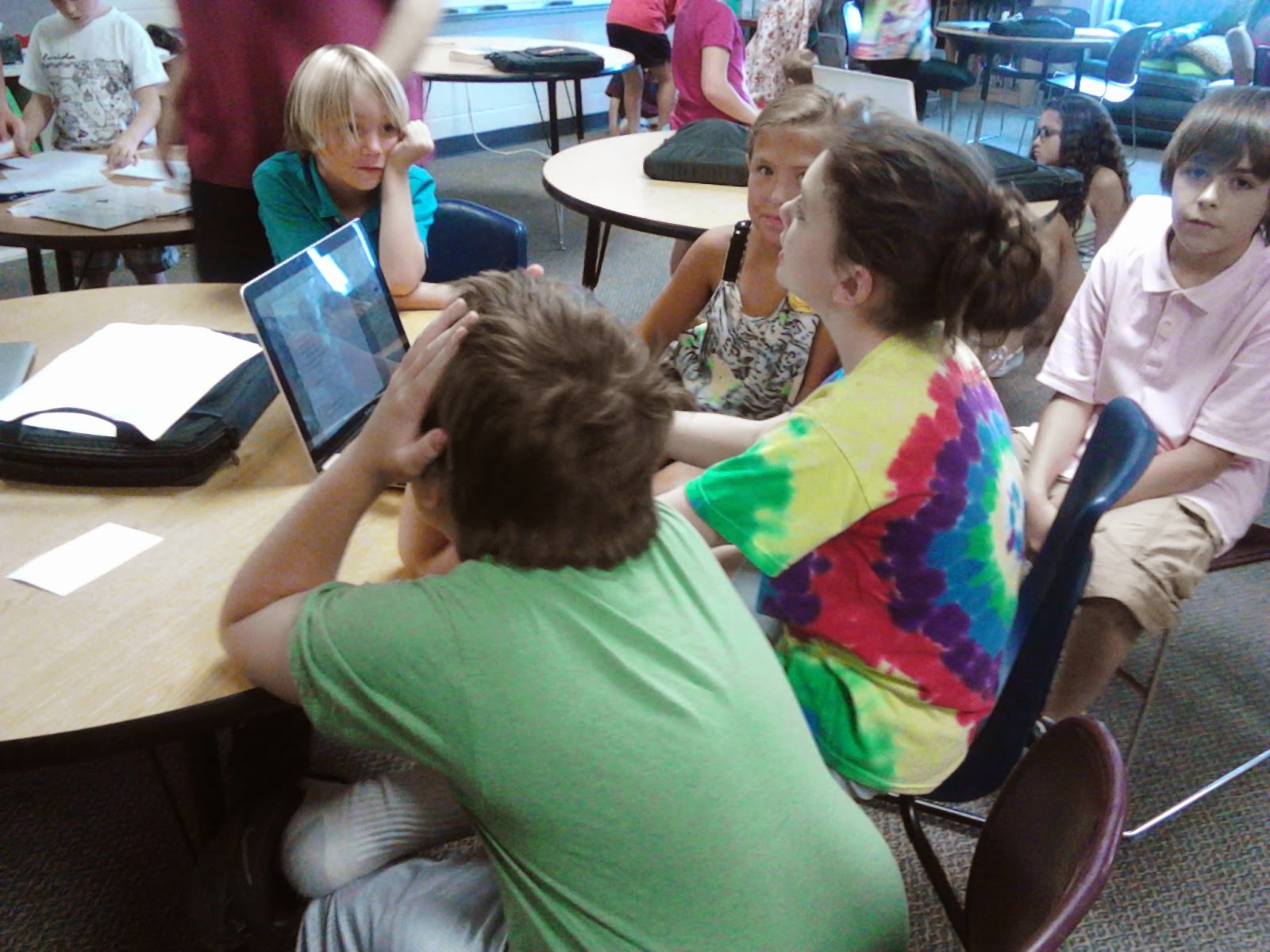 |
| Students are volunteering rules |
 |
| after writing a long list, we decided that a lot of what we were writing would be summed up with the word Respect. |
 |
| some groups had to really think things through |
 |
| some groups worked hard on props right away |
Teams performed their skits on the second day of school. The question we asked our selves was "How did that go?" And my partner, the one with the PBL experience (I am still very green at this), mentioned that other projects have possibly been more successful. But as we talked more, we realized it was really a great learning day(s). First of all, only about half of our students are familiar with the learning projects and working like this. So many were getting the exposure and experience they needed to become great learners. Secondly, we as teachers learned so much. I learned a lot about pairing students and who can/should be grouped together and who shouldn't be together. I learned about the process. We learned that we'll need to put more time limits on work times, as in, take more breaks. Those kinders were needing to get out and get a little exercise and let their brains focus on something else at times.
Do you do this as a teacher? Are you incredibly hard on yourself? Does your lesson analysis take into account the change of status of students, the "crowd" (so to speak) you are catering to, the fact that it is all a learning experience, whether or not it went as deep or as smoothly as you first thought it would/could/should? I hesitated to write about this, but it's a valuable part of the teacher evaluation of the success of the project. I know that the 5th-8th grade class will take this lesson deeper and talk about what worked, what it means to have rules, they will probably write about the process, and they will likely talk about ideas of what to do differently in the future. I also know that once we truly dig in, a project will not be considered to be complete until we get there, we take the time to analyze, adjust, edit, re-think, re-work, etcetera. We will have a final product that all are happy with. That is one of the basic principles of our school. Sometimes we have to remember that it is so different on the first few days of school and things will continue to progress and change.
Do you do this as a teacher? Are you incredibly hard on yourself? Does your lesson analysis take into account the change of status of students, the "crowd" (so to speak) you are catering to, the fact that it is all a learning experience, whether or not it went as deep or as smoothly as you first thought it would/could/should? I hesitated to write about this, but it's a valuable part of the teacher evaluation of the success of the project. I know that the 5th-8th grade class will take this lesson deeper and talk about what worked, what it means to have rules, they will probably write about the process, and they will likely talk about ideas of what to do differently in the future. I also know that once we truly dig in, a project will not be considered to be complete until we get there, we take the time to analyze, adjust, edit, re-think, re-work, etcetera. We will have a final product that all are happy with. That is one of the basic principles of our school. Sometimes we have to remember that it is so different on the first few days of school and things will continue to progress and change.
If the students learned half as much as we did, they are off to a good start.
Once in our own room, we worked on classroom procedures, classroom rules, and management. We practiced a little Whole Brain Teaching. I said "class," they said "yes." We also practiced the "please freeze" idea.
I came home exhausted and energized both. I have lesson plans to write for next week, but I can't wait. I am so excited to see what this year holds.










No comments:
Post a Comment